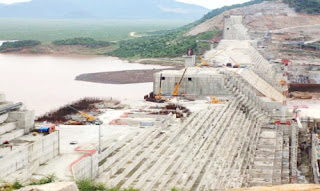Is Ethiopia ignoring its citizens stranded on the Saudi-Yemen border?
Addis Ababa appears to be doing very little to protect its migrant citizens who are facing brutality of both the Saudi government and Yemen’s Houthis rebels.
Tens of thousands of Ethiopian migrants have been living in inhumane conditions across the Arabian Peninsula for the last six months, as both the Saudis and their rivals in Yemen, the Houthis, have rendered their living conditions unbearable, according to human rights groups.
The Ethiopian government is yet to own the responsibility for their stranded citizens and save them from the abuse and squalid conditions, as they continue to be stuck between the two warring sides in the Yemen conflict.
“The Ethiopian government must intervene now. I remember being in Addis Ababa a while back and seeing a plane load of sort of evacuees coming from the Middle East - particularly, I think those from Saudi Arabia and not anywhere else - destitute in their looks,” says Abdi Samatar, professor of geography at the University of Minnesota and a research fellow at the University of Pretoria.
More than 30,000 Ethiopian migrants have been held in Saudi detention centres, where living conditions are poor and unhealthy, according to a recent EU Parliament resolution.
The Ethiopian government needs to take responsibility for its own citizens and find ways to bring back migrants from both Saudi Arabia and Yemen and other places, Samatar, who's an expert on eastern Africa, tells TRT World.
But Addis Ababa hasn't yet chalked out a concrete plan to repatriate its citizens from the Arabian Peninsula in the near future.
“With the high number of migrants in various host countries, the government will not have sufficient resources to repatriate everyone at the same time,” said Tsion Teklu, an Ethiopian state minister for foreign affairs, last month.
In the past few months, the living conditions of Ethiopian migrants in Saudi Arabia have deteriorated to an extent that several human rights groups have taken note of it, prompting the European parliament to condemn the Saudi government.
As the oil-rich kingdom refuses to be accountable for these stranded migrants, their numbers are also increasing in Saudi's squalid detention centers.
When Teklu was talking about not having “sufficient resources to repatriate” her citizens, she estimated the number of migrants held in Saudi Arabia around 14,000 in mid-September.
However, since then, the numbers have not decreased at all. Instead, the number of migrants held in Saudi detention centres have doubled, according to different sources.
Last week, when the EU Parliament condemned the Saudi mistreatment of Ethiopian migrants, the non-binding resolution said that “since April 2020, according to Human Rights Watch reports, around 30 000 Ethiopian migrants, including pregnant women and children, are being arbitrarily detained in Saudi Arabia under horrific conditions after having been forcibly expelled from northern Yemen by Houthi authorities.”
Nadia Hardman, who was the leading researcher of the HRW, conducting in-depth interviews with the Ethiopian migrants in Saudi Arabia, Yemen and Ethiopia, says that 16,000 Ethiopians have been held in just one of the Saudi facilities, according to the Ethiopian consulate in Jeddah.
“We can just imagine how many are in other (detention centers),” Hardman tells TRT World.
Due to the Covid-19 crisis, the Ethiopian government has continued to claim that they do not have the capacity to process all these people coming back.
But Hardman thinks that Addis Ababa could develop a plan to repatriate its citizens.
“We think there are ways they can do that,” she says.
The Ethiopian government could ask for help from international agencies such as International Organisation for Migration (IOA) and UNHCR, which is the UN Refugee Agency, to facilitate the repatriation process of their citizens to the country, according to Hardman.
“Ethiopians have facilitated some return flights, but they are not really many,” Hardman says.
But it appears to be that the Ethiopian government is not doing enough to reach those agencies.
Even worse, Addis Ababa has reportedly tried to suppress the Ethiopian migrants held in Saudi detention centers not to speak up about their terrible conditions.
In September, The Telegraph newspaper documented how the Ethiopian government was threatening its own citizens held in detention centres with “legal repercussions” if they shared photos and videos from the detention centres on social media.
Hardman confirms that.
“We saw a leaked document that The Telegraph obtained where the Ethiopian consulate in Jeddah was telling the Ethiopians to please stop sharing photos and videos with the world, this is not helping,” Hardman says.
“This is unbelievable in the middle of this crisis,” she says.
Ethiopia, which is currently building the biggest dam in Africa, has strong connections with Saudi Arabia, which is a big supplier of foreign exchange and investment to the country.
Since 2017, Saudi Arabia has cracked down on Ethiopian migrants, which were estimated to be total 500,000 in 2017 across the kingdom, according to the IOM.




Comments
Post a Comment